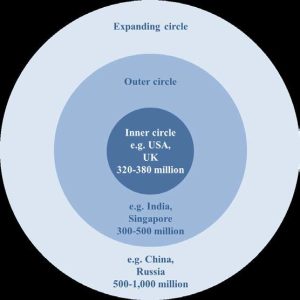whanaketanga o te reo
“Nothing is impossible. The word itself says ‘I’m possible!’”
– Audrey Hepburn
te ao Māori principles
There are five key principals that we, as an English Department, consider important as part of a holistic study at school. Please read through these and know that we will come back to them as we begin looking at texts.
- Kaitiakitanga: Guardianship of natural resources and elements of sustainability
- Rangatiratanga: Leadership, authority, Mana, empowerment, Respect
- Manaakitanga: The process of showing respect, generosity and care for others.
- Whanaungatanga: A relationship through shared experiences and working together which provides people with a sense of belonging.
- Tikanga: The customary system of values and practices that have developed over time and are deeply embedded in the social context.
Key Terms
|
an event constituting a new stage in a changing situation. |
|
the capacity to have an effect on the character, development, or behaviour of someone or something, or the effect itself. |
|
the action or process of settling among and establishing control over the indigenous people of an area. |
|
two or more circles which have the same center point. |
|
a language that is adopted as a common language between speakers whose native languages are different. |
|
a grammatically simplified form of a language, typically English, Dutch, or Portuguese, some elements of which are taken from local languages, used for communication between people not sharing a common language. |
|
the language which a person has grown up speaking from early childhood.
|
|
English for speakers of other languages
|
Learning Objectives
- List the influences to the nation of England and its language.
- Show how other cultures have been included in the English language.
Exercises
Spelling
| recalcitrant | fallacious | aberrant | confound | pacify | integrate |
| facilitate | committee | rapport | prevailed | interpersonal | diverge |
| exemplification | delegate | appreciate | employee | description | characters |
| discussions | principled | determine | comprehensive | massive | endanger |
| species | balance | contrived | preaching | provocation | hinder |
Vocabulary Builder
Choose the synonym for each of the words in italics. For some you will need to use dictionary definitions for nearly all the words to make sure you get the right one. As you go through them, try to make a note of new words to add to your vocabulary.
- Which word means the same as abrupt?
- interrupt
- sudden
- extended
- corrupt
- Which word means the same as apathy?
- hostility
- depression
- indifference
- concern
- Which word means the same as despair?
- mourning
- disregard
- hopelessness
- loneliness
- Which word means the same as contemptuous?
- respectful
- unique
- scornful
- insecure
- Which word means the same as tote?
- acquire
- carry
- tremble
- abandon
Development of the Language
whanaketanga o te reo
One of the main elements that makes a language last is the fact that it has to be malleable, or able to change – regularly. For English, that meant that it took words from other languages. Largely these were from the smaller colonies that Britain had conquered and used to further the empire of the Commonwealth.
Exercises
Have a go at working out where you think these words have come from.
| Foreign word now used in English language | Country/Language of origin | |
| 1 | Restaurant | |
| 2 | Rucksack | |
| 3 | Kindergarten | |
| 4 | Graffiti | |
| 5 | Tsunami | |
| 6 | Beef | |
| 7 | Tofu | |
| 8 | Ballet | |
| 9 | Bungalow | |
| 10 | Broccoli | |
| 11 | Cockroach | |
| 12 | Ninja | |
| 13 | Cafe | |
| 14 | Candy | |
| 15 | Pyjamas |
Englishes
As the English language has developed, there have been changes made to the language. As we saw on the previous page, English is a dynamic language: it changes constantly. And that is part of the beauty of the language, there is option to expand and contract the language as we see fit. Some words are even removed from the official dictionary if they become redundant!
As the English language has grown, it has begun to take over. In airports, often English is used in collaboration with the local language; in broadcasting media, the BBC, Al Jazeera, and US news services are streamed around the world and have a huge impact in politics and business; and through computer-mediated communication through English speaking businesses like Microsoft, Google, Apple and the social media sites.
The English that we use in New Zealand, for example, is different to the one spoken in Canada. That is due to a number of reasons, geographical location being one, and the influence of te ao Māori being another.
English is a global phenomenon and no longer belongs to just one region of the globe. Instead ‘World English’, ‘World Englishes’, ‘Global English’ or ‘International English’ have emerged as a better title for the state of the language.
Unlike Spanish and French (languages who also have wide spread international use) English does not have a governing body to control the settings and expectations of language use. Therefore, English is taken on by a region, and changed to suit the purposes of that region.
In some countries like China and Singapore, the use of English (with its influences of the native language) is called Chinglish or Singlish – respectively. Rather than being racially crude or insulting, this has become a legitimate way of analysing the language spoken by these people.
The term ‘Englishes’ acknowledges the differences in the language as it occurs around the world.
What is your English? How does it differ from the language used in traditional England (think about how the royal family speaks). This is sometimes called ‘Received Pronunication’
There are many, many people who speak English to some degree around the world. One researcher – Braj Kachru – mapped how he saw the development of the language of English as it spread.
He said there are three main areas that we can look at from a studying perspective. These areas he referred to as the three ‘circles’. They look a little like a dart board where the closer to the centre you get, the more able you are to speak English.
Kachru split the English speaking world into three distinct regions. The first is the Inner Circle, for those who used English as a first language or sometimes called the ‘mother tongue’ language. This is about 320-380 million people. New Zealand fits into this model.
The second is the Outer Circle, where English is used as a lingua franca which is where a country requires a central language to be used for official purposes where speakers generally come from multiple natural languages. For example, in Singapore there are speakers of Chinese, Malay, Indian and many others that make up the government. But the national language of the Singaporean government is English. This is about 300-500 million people.
Finally, the third – and largest – of the circles is the Expanding Circle. In this area people use English mainly as part of commerce – it may be for export and import purposes, or for tourism. Generally these people have limited exposure to English speakers and so have a limited vocabulary that is based on basic conversation skills and specifics of their enterprise.

Lingua Franca
A lingua franca is a common language serving as a regular means of communication relating to scientific, technological, and academic information between different linguistic groups in a multilingual speech community. Historically speaking, English first evolved as a lingua franca in the late 19th and early 20th centuries as a result of the British Empire, which exported its own language to all corners of the earth. In the second half of the 20th century, the American Empire replaced the British Empire throughout the world. English has reasserted itself as a medium for universal communication in an increasingly interconnected world.
English is now the dominant or official language in over 60 countries and is represented on every continent (Crystal, 1997). Moreover, English is the dominant voice in international politics, banking, the press, news agencies, broadcasting, the recording industry, motion pictures, travel, technology, knowledge management, and communications. It is the main language of the Internet, not to mention books, newspapers, airports and air traffic control, international business and academic conferences, sports, international competitions, pop music, and advertising. English has equally become the common language of international experts in a wide range of subjects, such as medicine, the natural sciences, and the social sciences. In addition to this, an estimated three-quarters of the world’s mail is written in English and most of the information stored in electronic retrieval systems is in English. Consequently, English is now needed in order to adjust to the world trend of keeping pace with scientific, technological, economic, and social advances.
Pidgin

A pidgin language is a simplified form of speech that is formed from one or more existing language. It becomes popular among people in an area and soon can become the easiest language for people to speak in order to be understood.
No one speaks a pidgin language as a mother tongue as there are no set rules of grammar and is not really a language at all. It is a means to communicate in the simplest form that there is. Often it was the first means of communication between indigenous people and the colonisers.
An example of a pidgin language is a mixture of English with Chinese that is used only when people buy and sell products.
There are some strong examples of pidgin English in places like the Caribbean, Hawaii and Nigeria.
An extract from Hine and the Tohunga Portal
Ko te reo te tuakiri | Language is my identity.
Ko te reo tōku ahurei | Language is my uniqueness.
Ko te reo te ora. | Language is life.